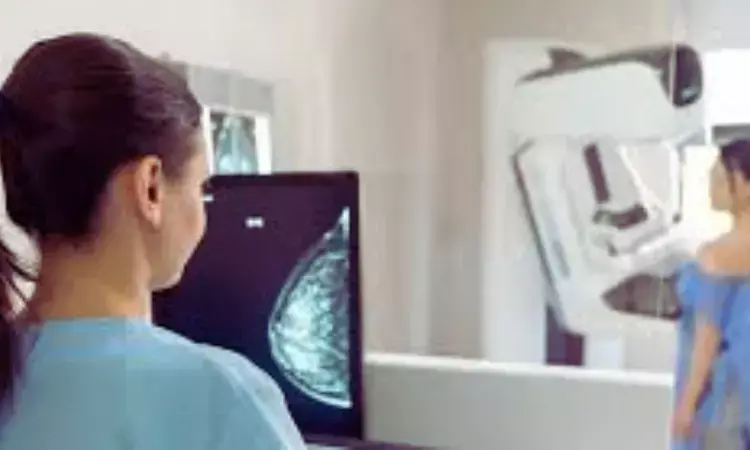- Home
- Medical news & Guidelines
- Anesthesiology
- Cardiology and CTVS
- Critical Care
- Dentistry
- Dermatology
- Diabetes and Endocrinology
- ENT
- Gastroenterology
- Medicine
- Nephrology
- Neurology
- Obstretics-Gynaecology
- Oncology
- Ophthalmology
- Orthopaedics
- Pediatrics-Neonatology
- Psychiatry
- Pulmonology
- Radiology
- Surgery
- Urology
- Laboratory Medicine
- Diet
- Nursing
- Paramedical
- Physiotherapy
- Health news
- Fact Check
- Bone Health Fact Check
- Brain Health Fact Check
- Cancer Related Fact Check
- Child Care Fact Check
- Dental and oral health fact check
- Diabetes and metabolic health fact check
- Diet and Nutrition Fact Check
- Eye and ENT Care Fact Check
- Fitness fact check
- Gut health fact check
- Heart health fact check
- Kidney health fact check
- Medical education fact check
- Men's health fact check
- Respiratory fact check
- Skin and hair care fact check
- Vaccine and Immunization fact check
- Women's health fact check
- AYUSH
- State News
- Andaman and Nicobar Islands
- Andhra Pradesh
- Arunachal Pradesh
- Assam
- Bihar
- Chandigarh
- Chattisgarh
- Dadra and Nagar Haveli
- Daman and Diu
- Delhi
- Goa
- Gujarat
- Haryana
- Himachal Pradesh
- Jammu & Kashmir
- Jharkhand
- Karnataka
- Kerala
- Ladakh
- Lakshadweep
- Madhya Pradesh
- Maharashtra
- Manipur
- Meghalaya
- Mizoram
- Nagaland
- Odisha
- Puducherry
- Punjab
- Rajasthan
- Sikkim
- Tamil Nadu
- Telangana
- Tripura
- Uttar Pradesh
- Uttrakhand
- West Bengal
- Medical Education
- Industry
Less frequent mammograms non-inferior to annual mammograms in breast cancer patients over 50 years: Study

A new study published in the journal of The Lancet showed that occasionally performed mammograms were not inferior to yearly mammograms for breast cancer-specific survival, recurrence-free interval, and overall survival for patients 50 years of age or older.
Globally, there are differences in the frequency of mammography monitoring for women following a breast cancer diagnosis. This study sought to determine if less frequent mammograms were not associated with a lower breast cancer-specific survival rate in women who were 50 years of age or older at diagnosis, 3 years after treatment for operable breast cancer, and disease-free.
Mammo-50 was a multicenter, randomized, phase 3 trial for women 50 years or older with an initial diagnosis of invasive or non-invasive breast cancer who were free of recurrences 3 years after curative surgery. It compared annual mammograms to less frequent mammograms. The trial took place at 114 National Health Service institutions across the United Kingdom.
3 years after curative surgery, patients were randomly assigned (1:1) to yearly or less frequent mammograms and were followed for 6 years. Co-primary outcomes were cost-effectiveness and breast cancer-specific survival. The cost-effectiveness study will be published elsewhere. The intention-to-treat population's survival was evaluated specifically for breast cancer.
Overall survival, recurrence-free interval, and hospital system referrals were secondary outcomes. With 2·5% one-sided significance, 5000 women had 90% power to identify a 3% absolute non-inferiority margin for breast cancer-specific survival.
A total of 5,235 women were randomized to either less frequent (n=2617) or yearly (n=2618) mammograms between April 22, 2014, and September 28, 2018. Nearly, 4,202 (80·3%) women had conservation surgery, 4,576 (87·4%) had invasive disease, 1,159 (22·1%) had node-positive disease, 4,330 (82·7%) had oestrogen receptor-positive tumors, and 3,858 (73·6%) were 60 years of age or older.
Close to 343 women passed away over a median follow-up of 5·7 years, 116 of whom had breast cancer. At the predetermined 3% margin, the 5-year breast cancer-specific survival was 98·1% for the annual mammography group and 98·3% (97·8–98·8) for the less frequent mammography group, indicating that less frequent mammography is not inferior.
In the yearly mammography group, the 5-year recurrence-free interval was 94·1%, while in the less frequent mammography group, it was 94·5%. Overall, this study found that women who have received yearly mammographic monitoring for 3 years and show no symptoms of recurrence can safely have fewer frequent mammograms.
Reference:
Dunn, J. A., Donnelly, P., Elbeltagi, N., Marshall, A., Hopkins, A., Thompson, A. M., Audisio, R., Pinder, S. E., Cameron, D. A., Hartup, S., Turner, L., Young, A., Higgins, H., Watson, E. K., Gasson, S., Barrett-Lee, P. J., Hulme, C., Shinkins, B., Hall, P. S., & Evans, A. (2025). Annual versus less frequent mammographic surveillance in people with breast cancer aged 50 years and older in the UK (Mammo-50): a multicentre, randomised, phase 3, non-inferiority trial. Lancet, 405(10476), 396–407. https://doi.org/10.1016/S0140-6736(24)02715-6
Neuroscience Masters graduate
Jacinthlyn Sylvia, a Neuroscience Master's graduate from Chennai has worked extensively in deciphering the neurobiology of cognition and motor control in aging. She also has spread-out exposure to Neurosurgery from her Bachelor’s. She is currently involved in active Neuro-Oncology research. She is an upcoming neuroscientist with a fiery passion for writing. Her news cover at Medical Dialogues feature recent discoveries and updates from the healthcare and biomedical research fields. She can be reached at editorial@medicaldialogues.in
Dr Kamal Kant Kohli-MBBS, DTCD- a chest specialist with more than 30 years of practice and a flair for writing clinical articles, Dr Kamal Kant Kohli joined Medical Dialogues as a Chief Editor of Medical News. Besides writing articles, as an editor, he proofreads and verifies all the medical content published on Medical Dialogues including those coming from journals, studies,medical conferences,guidelines etc. Email: drkohli@medicaldialogues.in. Contact no. 011-43720751


